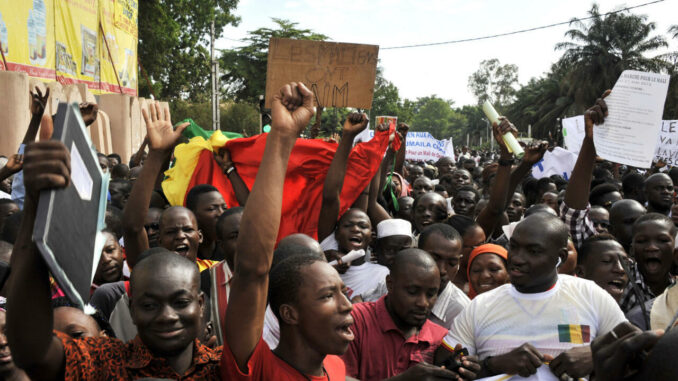
In the dusty streets of Bamako, voices once muffled by military rule rang out again. Hundreds of Malians gathered on 3 May in what is fast becoming a defining moment in the country’s democratic journey—less a simple protest, more a referendum on the legitimacy of power imposed without consent.
This time, the fight is not for seats, but for survival. The potential dissolution of political parties by Mali’s ruling junta has shaken the country’s fragile political fabric, pushing civil society, opposition figures, and former statesmen into a rare unified front. What was meant to be a modest gathering inside the Palace of Culture was quickly redirected to its forecourt—blocked by pro-junta groups and police lines, yet undeterred in spirit.
Protesters, flanked by the retired and the rising, chanted slogans not only against dictatorship, but in defence of identity: “Elections now!” and “Long live democracy!” were more than cries—they were affirmations of civic ownership in a time when legal frameworks are being hastily torn down.
Veteran voices such as Ali Nouhoun Diallo and Sy Kadiatou Sow stood beside a new generation of political actors, all invoking the same creed: that sovereignty belongs to the people, and the ballot—not the barrel—must shape Mali’s future.
The backdrop is chilling. On 30 April, Mali’s transitional authorities repealed the law that regulates political parties. Jurists interpret this as a prelude to one-party rule. Days earlier, a regime-led forum—largely boycotted by the opposition—recommended not only the abolition of party politics but the elevation of junta leader General Assimi Goïta to the presidency for five years, without a single vote cast.
If enacted, these recommendations will mark an official return to centralised, unelected authority—a reversal of the decades-long, hard-earned shift toward democratic governance.
